Yambo is an open source project aimed at studying the excited state properties of condensed matter systems from first principles using many-body methods. As input, Yambo requires electronic ground state structure data calculated by codes such as Quantum ESPRESSO and Abinit.
Yambo’s capabilities include linear response calculation, quasi-particle corrections of quantities based on the GW formalism, optical absorption, and other spectroscopic quantities. Recent developments range from the inclusion of important but often overlooked physical effects, such as electron-phonon interactions, to the implementation of a real-time propagation scheme for the simulation of linear and nonlinear optical properties. Yambo is coded with an efficient parallel structure that allows you to take advantage of modern high-performance processing architectures and GPU cards. Furthermore, it is possible to automate workflows and interface with the yambopy and AiiDA software tools.
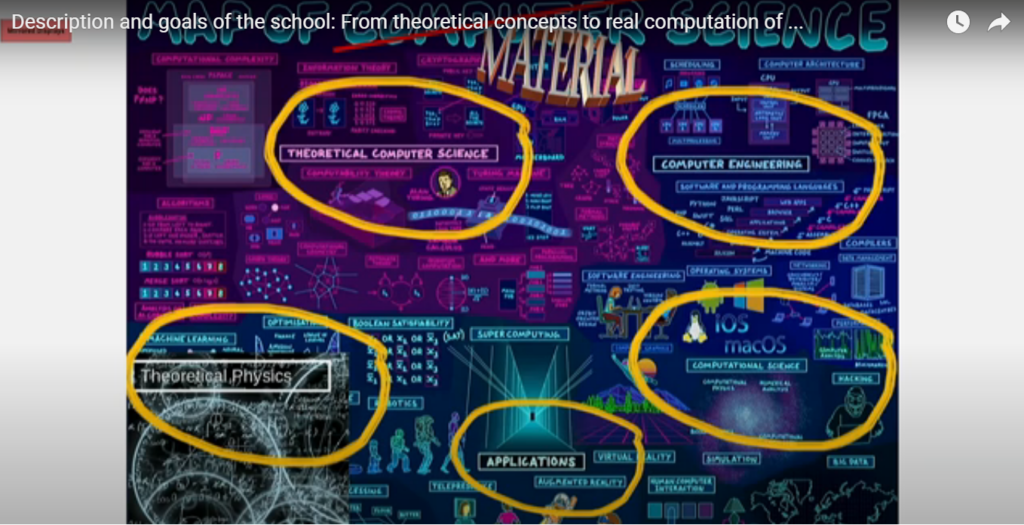
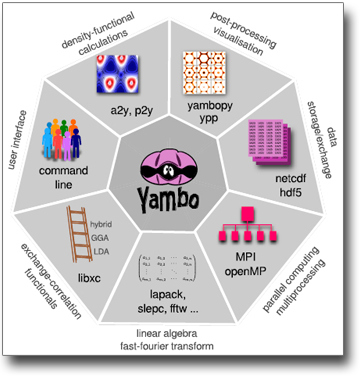
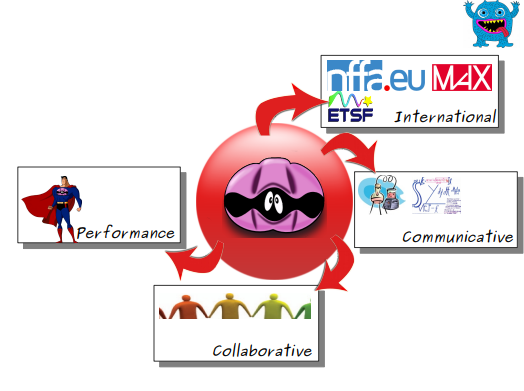
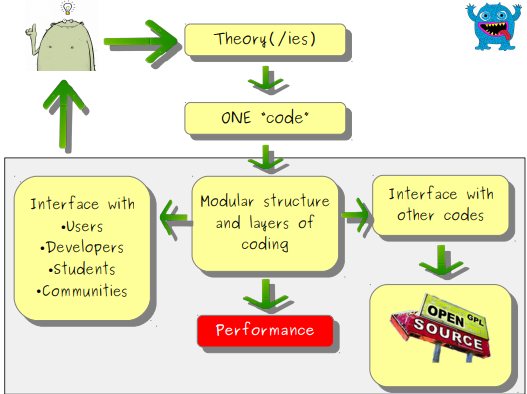
Furthermore, Yambo is part of two European networks dedicated to exascale computing (MaX) and to the creation of a European infrastructure for materials science (NFFA). It is also a member of the Partnership for Advanced Computing in Europe (PRACE) and is installed in many high-performance centers around the world. Yambo represents a tool in continuous development and provides the CNR modeling group with an advanced, high-performance, robust and deeply validated tool for interpreting a wealth of physical phenomena in materials science.
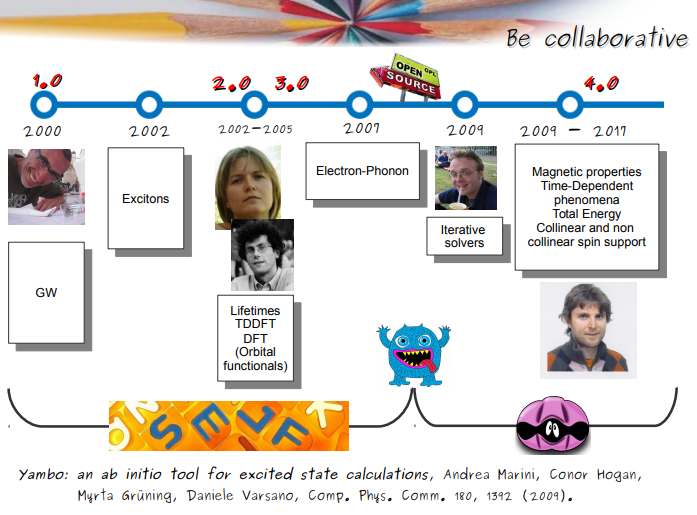
The Yambo project and the related code, available free of charge online with all explanations of installation and use, represent an important contribution to modern physics, allowing the development of enormous databases on the properties of materials, especially the latest generation ones and their combinations , strategic to optimize the efforts of scientists around the world and reduce, thanks to the ability to simulate complex phenomena, the time for research applications and the consequent necessary technological transfer so that new materials truly reach everyone’s reach. Materials science and its industrial applications in all sectors has benefited and continues to benefit greatly since the project started in 2009.
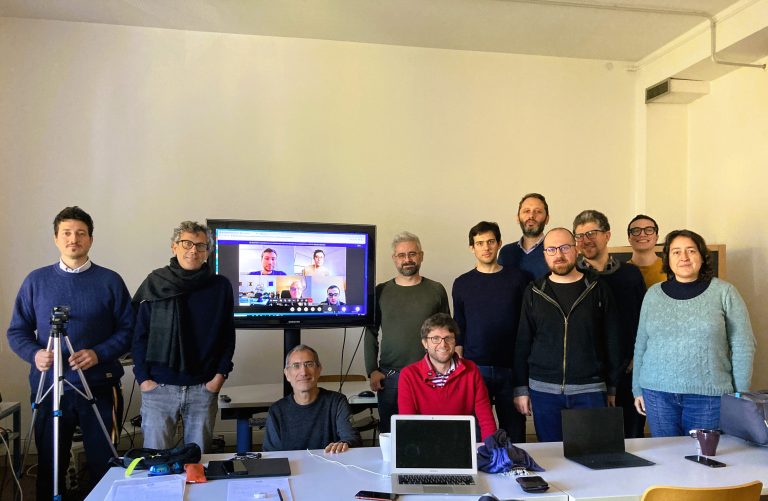
Another peculiarity of the Yambo code is that it allows users to compare the results of simulations with those obtained in experimental laboratories and expand, according to the principles of the new “open science”, a worldwide network of scientists who bring together the progress achieved individually. Infact, a “community” has been created which, in addition to sharing Yambo tools, methodologies and software, actively participates in the scientific development of the subject, meeting in a forum which currently has over 1,000 members and 12,000 posts.
For these reasons, the Yambo project and the entire community that has formed around it represents a scientific laboratory and a successful social experiment, or rather a “best practice” that can be replicated in other contexts, first of all scientific ones.

Yambo schools
Since 2009, after the validation of the code at an international level, more and more users and multidisciplinary developers (physicists, chemists, engineers, computer scientists involved in materials science) have joined the Yambo project, forming a truly open research group. The implementation of the project over the years is due in particular to the contribution of ever new collaborators of the creator Dr. Marini: young researchers, research fellows and doctoral students reporting to the CNR and the involvement has increased exponentially following the numerous courses held by Dr. Marini and his research group, upon invitation from universities and research centers distributed across the five continents.

From Europe, China, Russia, the United States, the “lectures” have, in recent times, also been held in various African countries, in universities where growing interest and knowledge in science and the “hard sciences” are developing.
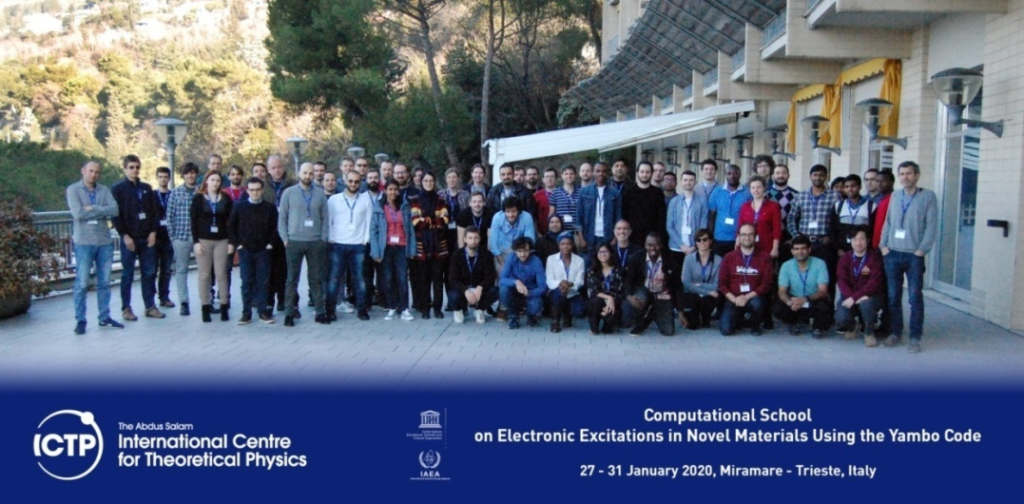
Source: Fonte: https://psi-k.net/

CECAM – University of Luxemburg, 2017. Source: https://psi-k.net/
Since 2019, Dr. Marini has also become a scientific consultant of ASESMA (International Advisory Board) – African School on Electronic Structure Methods and Applications, which since 2008 has organized biennial courses (with emphasis on computational methods for calculation) for university students and physical and material science researchers in South Africa (2008, 2010, 2015), Kenya (2012), Ghana (2016), Ethiopia (2018) and the 2021 virtual edition.
The school also periodically organizes workshops at local level. These include RASESMA – Regional African School on Electronic Structure Methods and Applications (February 2023 Nairobi, Kenya) and CASESMA – Central African School on Electronic Structure Methods and Applications (December 2022 Kinshasa, Democratic Republic of Congo).


Camerun, November 2019 (Source: Facebook)

Workshop CASESMA, Congo, Dicember 2022 (Source: Facebook)
Recent training events were also organized by ICTP-EFRAIR at the University of Rwanda, Kigali campus. ICTP-EFRAIR is a vibrant international center of advanced education and research, poised to become one of the leading physics institutes in Africa. It is a partner institute of the Abdus Salam International Center for Theoretical Physics (ICTP) and is also a UNESCO Institute. Dr. Marini has been a teacher in all the workshops organized to date.

RASESMA, Kenya , Februar 2023 (Source: Rasesma)

ASESMA, Rwanda, June 2023 (Source: yambo-code.eu)